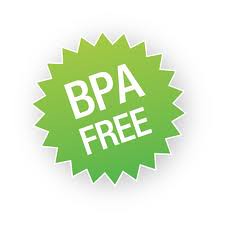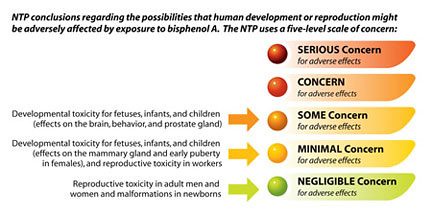Does the paper that POS Supply Solutions purchases for use in thermal paper receipt rolls contain BPA?

Some of the papers that are outsourced by POS Supply Solutions to fulfill customer requirements and used for retail receipts, gas pump receipts, ATM applications, and other point of sale transaction receipts may contain BPA depending on the source of the paper stock.
What is POS Supply Solution’s position regarding the safety of Bisphenol A?
POS Supply Solutions realizes that the use of BPA in thermal papers is a concern to our customers and the end users of thermal papers. POS Supply Solutions makes no claims regarding the safety of BPA as that is the job of agencies responsible for public health and safety. POS Supply Solutions has three action plans to address the concerns regarding BPA. The first is to monitor the ongoing studies and scientific debate on BPA. The second is to work with vendors from whom we purchase thermal grades containing BPA to assist them in finding alternatives to BPA if the scientific or legislative community recommends or requires such changes. The third is to respond to our customer’s requests for BPA free product.
Does POS Supply Solutions offer BPA FREE Thermal Paper?
POS Supply Solutions realizes that the use of BPA in thermal papers is a concern to our customers and the end users of thermal papers. POS Supply Solutions has a complete line of BPA FREE Thermal Paper Rolls. Please visit http://www.possupply.com/BPA-Free-Thermal-Paper-Rolls for a complete list.
What is the best source of information on BPA health concerns?
The National Institute of Health (NIH) and the National Toxicology Program (NTP) have been working diligently to determine if BPA presents health and safety risks. NIH and NTP are agencies of the United States Government Department of Health and Human Services. They are affiliated with the Food and Drug Administration (FDA), National Institute for Occupational Safety and Health (NIOSH), Environmental Protection Agency (EPA), Occupational Safety and Health Administration (OSHA) and other agencies that assess risks to public health and safety. NIH and NTP are an excellent source of unbiased information based on scientific analysis of BPA. They operate some of the most respected research centers in the world. BPA toxicology has been a priority at NIH and NTP for several years. Their scientists are assessing its safety by reviewing and analyzing scientific data gathered from laboratories all over the world. We have provided a link to the NIEHS website below where you will find facts on BPA to better understand the issues surrounding BPA. Please spend some time on the website. You will find accurate information on BPA without the possibly inaccurate and/or biased information that can be found on the Internet and in the press.
What is being done to eliminate BPA from thermal paper?
The Environmental Protection Agency (EPA) has been working on this matter and is sponsoring an initiative designed to assist the thermal paper industry in finding safer alternatives to BPA as quickly as possible. Representatives from the thermal paper industry, large retailers (who use thermal paper), the scientific community, the chemical industry, the press, and other interested parties met in Washington with the EPA, NIH, NIOSH, NTP, and other federal health and safety agencies to launch the initiative. POS Supply Solutions will be working on the EPA steering committee and the working group focusing on finding and transitioning to alternatives to BPA.
Do all thermal papers contain BPA?
No, BPA is a component primarily utilized in some thermal point of sale receipt papers. Examples include gas pump receipts, cash register and ATM receipts. Recent independent analyses of thermal receipt papers used by large retailers indicate that roughly half of the receipts tested contained BPA. BPA is not commonly found in thermal labels, tickets and tags. Examples include supermarket labels, event tickets, airline baggage tags, etc.
Where can I find more information regarding the health and safety of BPA?
Please review the information below prepared by the NTP. It summarizes the results of NTP’s study on the possible effects of BPA and provides an excellent source of unbiased information.

MORE INFORMATION:

















